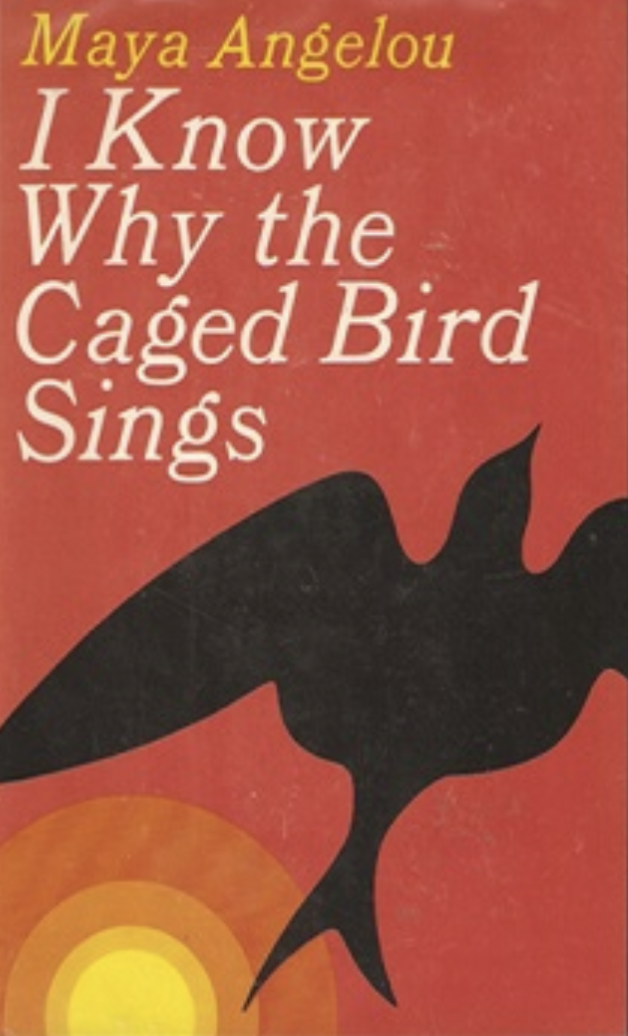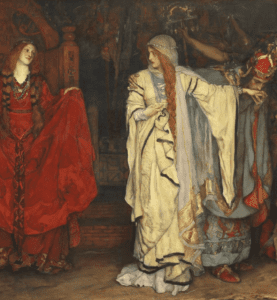Author: Maya Angelou, a twentieth-century American writer, poet, and civil rights activist.
The first of Maya Angelou’s seven-part autobiography, this coming-of-age story of literary brilliance describes Maya dealing with rape and racism. The life of the black community in America in the mid-twentieth century comes alive through the child Maya’s eyes.
Marguerite Johnson aged three, called Maya, and her brother, Bailey aged four, are sent from California to Stamps in Arkansas by their divorcing parents, to live with paternal grandmother Momma Henderson, and crippled Uncle Willie. Momma runs the only general store in the Black community of Stamps. Maya resents Momma’s deferential treatment of ‘whitefolks’. Impudent white girls Momma calls ‘poor white trash’ taunt Momma. Once, one of them does a handstand, legs straight up, the dress falling around her shoulders, revealing she has nothing on underneath her dress. This infuriates Maya.
Maya feels ugly and fantasizes someday she will wake up from her black dream as white and blond. On Easter Sunday, reciting incoherently in Church, she trips and wets herself. Maya’s playmates consider her skin shit-colored, while Bailey’s is velvet-black. Graceful and handsome, Bailey always champions Maya. Black Stamps live in fear of the Ku Klux Klan without help from the Sheriff. Uncle Willie and other men hide from lynch mobs in bins of vegetables and chicken droppings.
The siblings receive separate Christmas gifts from each parent. The realization that their parents had abandoned them profoundly affects the siblings. They always wondered why they were sent away. The Depression affects Black Stamps less than White till wages in the cotton fields plummet.
Bailey Senior visits and takes them away, leaving them with their mother Vivian Baxter in St. Louis. Vivian is beautiful and kind, but not indulgent. Vivian’s mother, the influential Grandmother Baxter, is almost white with no Negroid features. She lives with her husband and sons, Maya’s fierce uncles.
Since Maya has nightmares, sometimes Vivian allows Maya in her bed, which she shares with her boyfriend Freeman. Once when Vivian leaves with Maya still in bed, Freeman has Maya touch him. Later, he holds her softly, which Maya enjoys, and again sits on his lap some days later. Freeman threatens to kill Bailey if Maya tells, so Maya keeps quiet immersing herself in books from the library. One day when Vivian and Bailey are absent, Freeman rapes Maya. She falls ill and Freeman moves out. Bailey discovers her soiled panties. Maya is hospitalized, and Bailey coaxes the truth out of her. He tells Grandma Baxter and Freeman is arrested before their gun-toting uncles know.
Eight-year-old Maya is convinced that though Freeman has done wrong, she has helped him do it; and if she tells the whole truth, her family will be disappointed. When asked in court whether Freeman had touched her before, she answers no. Freeman is sentenced but granted bail. He is however kicked to death immediately after, by unknown perpetrators. Maya is distressed because she lied after taking an oath on the Bible and caused Freeman’s death. Thinking if she speaks to someone they might die, Maya stops speaking.
Initially considered a post-traumatic affliction, her silence is soon interpreted as insolence and penalized. Maya and Bailey are sent back to Stamps where the southern blacks accept her and Bailey speaks on her behalf. The graceful and educated Bertha Flowers, the aristocrat of Black Stamps, explains to Maya that voices infuse words with deeper meaning. Bertha asks her to read the books she gives Maya aloud, drawing her out.
At age ten, Maya goes to work for a white lady, who first calls Marguerite Margaret, but soon switches to Mary. Maya purposely neglects her chores to get fired, failing which Maya breaks her favorite dishes, causing her to call her Margaret at last. Bailey watches Kay Francis, the actress, in a movie and thinks she looks exactly like Vivian. They hear on the radio in the crowded store the match when black Joe Louis defeats a white boxer to retain his World Heavyweight Champion title.
Maya graduates from eighth grade. The white speaker dampens their spirits by implying black boys can only excel in sports, the majority becoming maids and farmers. Henry, the class valedictorian, sings the ‘Negro national anthem’ — a poem by James Weldon Johnson, in protest. When Maya suffers from cavities, Momma takes her to the white dentist to whom she had lent money, there not being any black dentist in Stamps. He refuses, stating he would rather ‘put his hand in a dog’s mouth than a nigger’s’. It shocks Bailey to see a white man grin when a black man’s rotting bloated corpse is fished out of a pond. Bailey wonders why there is such hatred towards black people.
Momma takes Maya to Los Angeles and Bailey follows in a month after saving the money for another ticket. Vivian settles them in Los Angeles returning to San Francisco where she lives. The siblings live in Oakland looked after by Grandma Baxter when Momma leaves. Soon after World War II starts, Vivian marries Daddy Clidell and they move to San Francisco. Daddy Clidell is the only real father Maya knows. They watch blacks replace the Japanese population of the city during the war. Maya joins a school with only three black girls, where Miss Kirwin, unlike other teachers, is stimulating instead of intimidating.
Maya’s father, Daddy Bailey, invites Maya to spend a summer with him and his girlfriend Dolores. They live in a trailer park. Daddy Bailey takes Maya to Mexico with him and falls asleep in the backseat of the car after drinking heavily. Maya, driving for the first time, carefully drives down the slope of the mountain. Upon their return, Maya has a nasty fight with Dolores and Dolores cuts Maya. Daddy takes her to be patched up by friends and leaves her in another friend’s trailer. Maya leaves and ends up in a junkyard with some other underage homeless youth. After a month, she telephones Vivian to arrange for an airline ticket so that she can get home.
At fifteen, Maya struggles against prejudice to get the job of a streetcar conductor, becoming the first black employee on San Francisco streetcars. Maya reads about lesbianism and experimentally seduces a neighborhood boy. As a result, she starts on the journey of motherhood.




